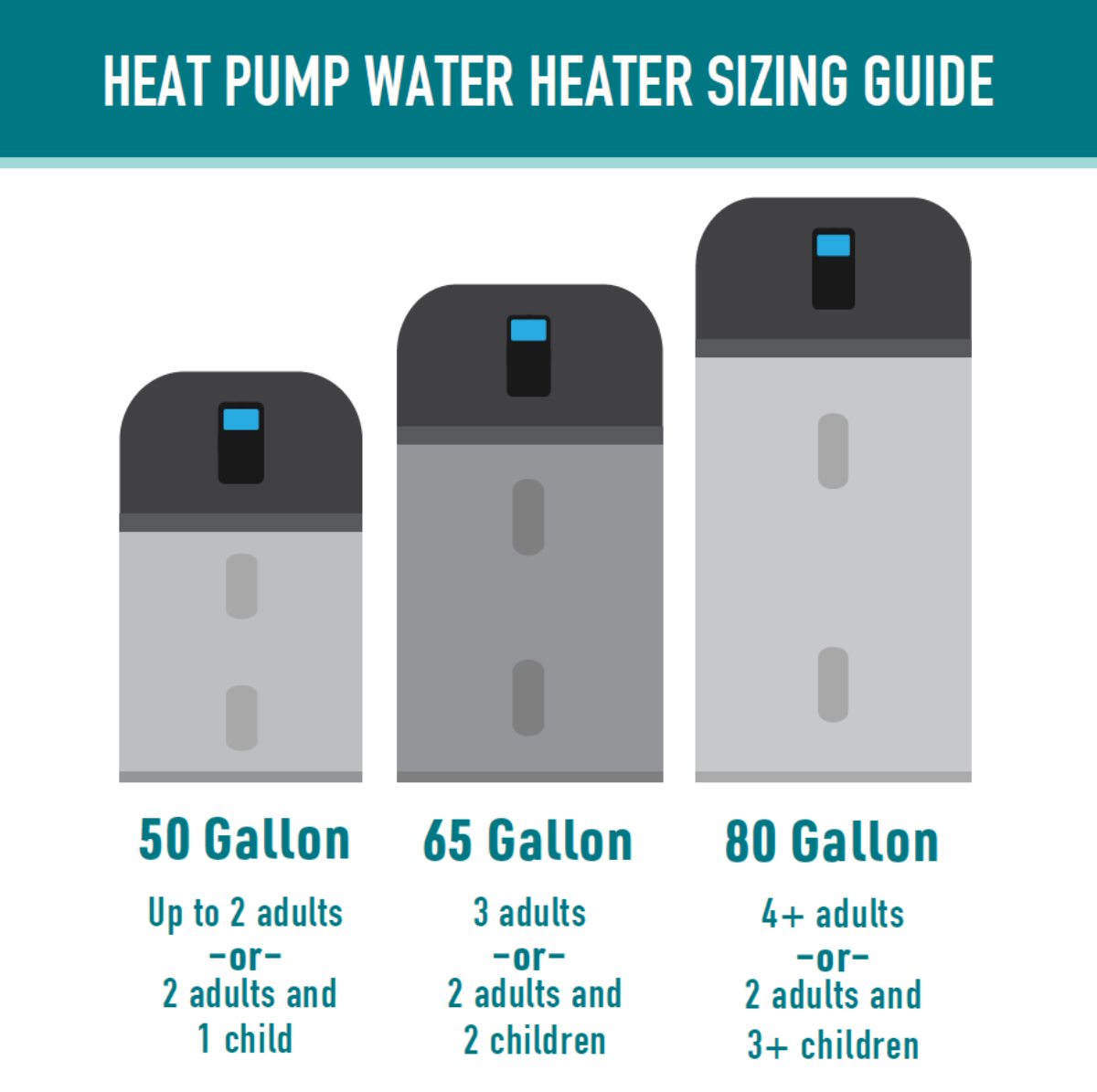A properly sized heat pump water heater is more likely to meet the homeowner’s expectations of performance and savings. In order to provide your customers with helpful guidance, you’ll need to understand the amount of hot water they will need during peak usage, and consider ways to take advantage of the heat pump’s efficiency when the water heater is recovering.
| Consecutive 10-minute showers | Appropriate tank size |
|---|---|
| 1-2 | 50 Gallon |
| 3 | 65 Gallon |
| 4+ | 80 Gallon |
For homeowners whose usage approaches the water heater’s first hour rating, a best practice is to upsize from a 50-gallon standard electric tank to a 65-gallon heat pump water heater, or from 65 gallons to 80 gallons — this will ensure that the heat pump is the primary heat source for hot water. Remember, it’s far less expensive to keep a few extra gallons of water hot using the heat pump than it is to use the electric elements to keep up with demand.
Refer to the infographic below when talking to customers about upsizing to help them understand the benefits of upgrading to a larger tank.

Although larger tanks offer better efficiency, be mindful that units that are too big may present an unnecessarily high upfront cost, which negates some potential savings.
Following these sizing recommendations will keep your customers from running out of hot water and ensure that the savings that they counted on become a reality.